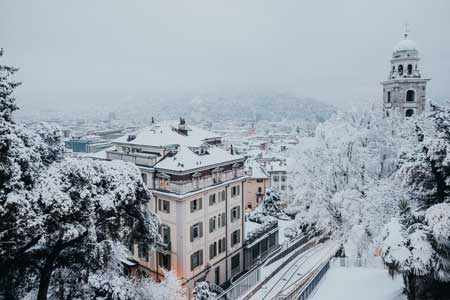While most scientists agree that climate change is happening, there are areas of debate. One area of debate is, What is happening in “my backyard”? In Philadelphia sixteen of the seventeen warmest years in history have occurred between 2001 and 2017. However, Philadelphia residents and homeowners know that winter’s freezing temperatures and snow storms seem to be getting worse. Is climate change affecting Philadelphia’s real estate? What’s the explanation?
Climate scientists say this is exactly what is to be expected for Philadelphia and the surrounding area. Yes, the temperatures are getting warmer but the winters are seeing more snow. How is that possible? What is happening is that the oceans are becoming warmer and evaporation is putting more moisture and energy into the atmosphere. When there is more moisture and energy in the atmosphere you have conditions that can lead to stronger and more frequent winter storms.

How does this impact homes and commercial buildings? Water is one of the most destructive elements aligned against real estate. And snow becomes water when it melts. Any building or home that experiences water penetration can have damaged wood framing, flooring, walls and more. Building areas that are not properly dried-out can develop mold. In addition, multiple layers of heavy, wet snow can collapse a roof. And if water comes into contact with interior electrical lines the situation could become dangerous. So more humidity and rain in the summer, plus more snow in the winter, equals more potential for water to enter buildings and homes.
The weather patterns in the Philadelphia area move in a counter clockwise direction, with the more southerly air spinning into the northwest arctic air in the winter. These weather patterns will continue, the difference being that the weather will contain more moisture and energy and produce more snow in the winter.
So there you have it Philadelphia. More heat in the summer, more snow in the winter. Build your homes and commercial buildings as water-tight as possible.
Return to the Blog Page
